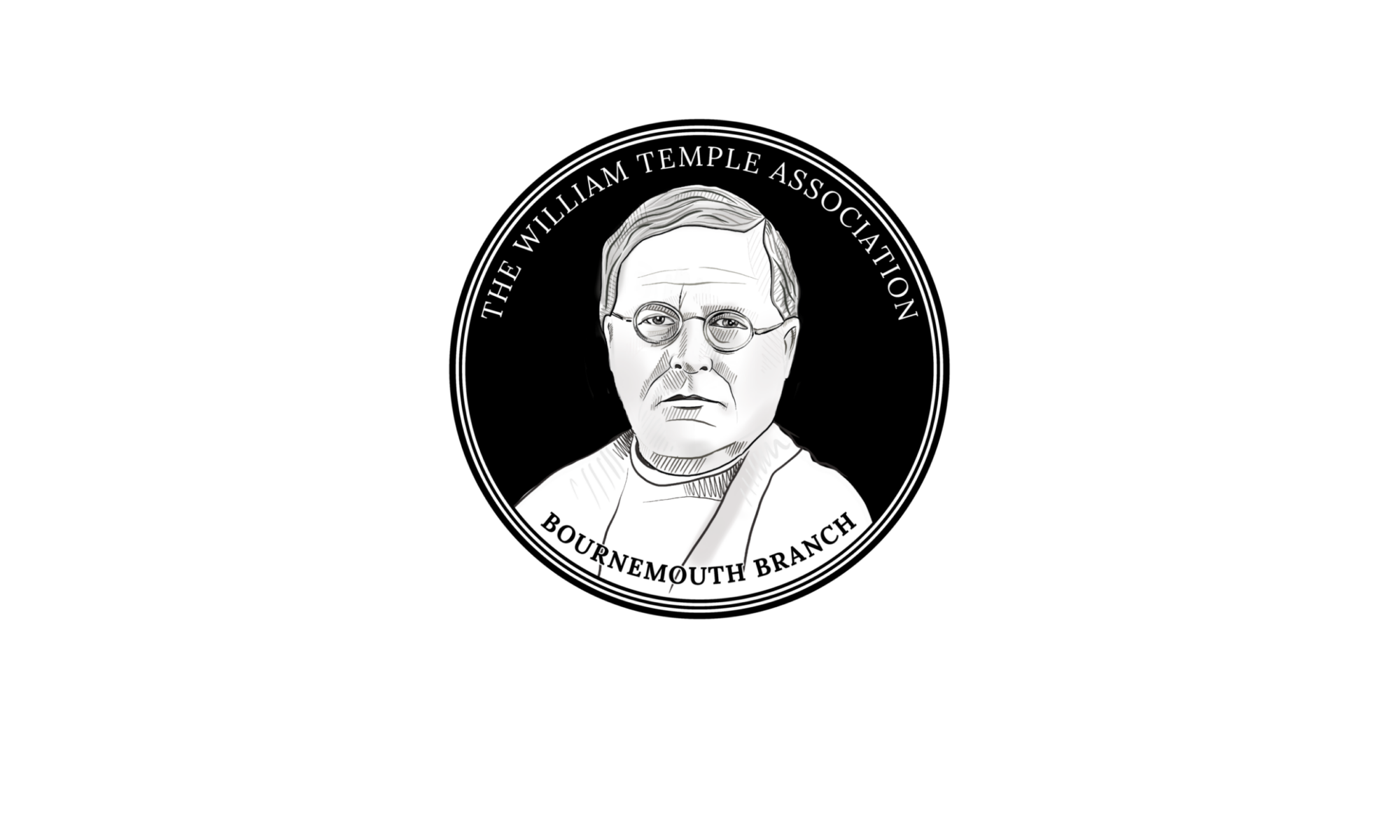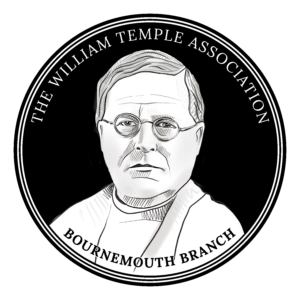15 October 1881 born in Exeter, son of Frederick Temple,
(who was Archbishop of Canterbury 1896-1902)
1900 Exhibitioner of Balliol College, Oxford
1904 Fellow of Queen’s College, Oxford
1904-1910 Lecturer in philosophy at Queen’s College, Oxford
1909 Ordained priest
1910-14 Headmaster, Repton School
1914-17 Rector, St. James’s, Piccadilly
(While in the last two posts, Temple led the Life and Liberty movement, an unofficial body designed to stimulate change in the governance of the Church of England)
1919-1921 Canon of Westminster
1921-1929 Bishop of Manchester
1929-1942 Archbishop of York
1942-1944 Archbishop of Canterbury
26 October 1944 died in Westgate-on-Sea, Kent
1904 Fellow of Queen’s College, Oxford
1904-1910 Lecturer in philosophy at Queen’s College, Oxford
1909 Ordained priest
1910-14 Headmaster, Repton School
1914-17 Rector, St. James’s, Piccadilly
(While in the last two posts, Temple led the Life and Liberty movement, an unofficial body designed to stimulate change in the governance of the Church of England)
1919-1921 Canon of Westminster
1921-1929 Bishop of Manchester
1929-1942 Archbishop of York
1942-1944 Archbishop of Canterbury
26 October 1944 died in Westgate-on-Sea, Kent
Temple was a Leader in the ecumenical movement and in educational and labour reforms. A man of considerable energy and intellectual ability, he wrote constantly, completing his largest philosophical work, Mens Creatrix (1917; ‘The Creative Mind’), the night before his marriage.
Among other works are a volume of Gifford talks, Nature, Man, and God (1934), Christianity and Social Order (1942), and The Church Looks Forward (1944).
Temple’s sympathetic attitude toward the Labour movement led him to join the Labour Party (1918-25); he was also president (1908-24) of the Workers’ Educational Association.
He was chairman of an international and interdenominational Conference on Christian Politics, Economics and Citizenship held in 1924, an Anglican delegate to the ecumenical Faith and Order Conference at Lausanne in 1927, and chairman of the Faith and Order Conference held in Edinburgh in 1937.
The British Council of Churches and the World Council of Churches owe their formation largely to the initiatives provided by Temple, and his influence both inside and outside Parliament brought the various churches of the country to support the Education Act of 1944.
Temple’s theological position has been described as a Hegelian Idealism, affirming links between church and state and thus making it appropriate for Christian pronouncements to be made on social problems and economic policies.
A brief introduction to William Temple (1881-1944)
In 1942, when Winston Churchill was faced with a vacancy at Lambeth Palace, he had no difficulty in choosing the right candidate to present to the king. William Temple stood head and shoulders above any rival, although he was far too humble to see it like that. Temple held the office of Archbishop of Canterbury for only 2 years, but in that short time he established himself as probably the greatest Archbishop of the 20th century.
Himself the son of an archbishop (Frederick), he was a larger-than-life person, outstandingly talented, full of energy, humour, generosity, and far-ranging in his interests. Firmly rooted in prayer and scripture, and uniting solid learning with great administrative ability, Temple’s name was known as much by the ordinary working man as it was at court or in parliament. His public speeches and radio broadcasts commanded widespread attention and respect.
Though remaining independent of organised parties, both political and religious, he was often criticised for interfering in politics, but what he said and wrote had great influence in the corridors of power. As Primate, he was one of the greatest moral forces of his time. An outspoken advocate of social reform, his vision was that of a caring Church with a responsibility for putting things right. He cared passionately about the spiritual health of the nation, and his voice in the those dark years of war was listened to, as he looked forward with Christian hope to the new world which would emerge from the old.
He crusaded against usury, slums, dishonesty, and the excessive profit motive in business. His views carried enormous weight in the debate which led to the revolutionary Education Act of 1944. He was a major force in ecumenical circles, the Faith and Order movement, the Life and Liberty movement, the Workers Educational Association, the Industrial Christian Fellowship, the Student Christian Movement, the YMCA, and the Church of England Men’s Society (no longer in existence)
He was instrumental in founding the Council of Christians and Jews, and when he died the World Jewish Congress expressed its deepest grief.
Temple has been described as ‘an independent thinker and philosopher of some significance’, as can be seen in his principal published works: Mens Creatrix (1917), Christus Veritas (1924), Nature, Man and God (1932-34), Readings in St John’s Gospel (1939), and Christianity and Social Order (1942).
Some of Temple’s quotations
“It is a great mistake to think that God is chiefly interested in religion.”
“Knowledge of God can be fully given to man only in a Person, never in a doctrine. Faith is not the holding of correct doctrine, but personal fellowship with the living God.”
“The Church is the only society on earth that exists for the benefit of non-members.”
He was instrumental in founding the Council of Christians and Jews, and when he died the World Jewish Congress expressed its deepest grief.
Temple has been described as ‘an independent thinker and philosopher of some significance’, as can be seen in his principal published works: Mens Creatrix (1917), Christus Veritas (1924), Nature, Man and God (1932-34), Readings in St John’s Gospel (1939), and Christianity and Social Order (1942).
Some of Temple’s quotations
“It is a great mistake to think that God is chiefly interested in religion.”
“Knowledge of God can be fully given to man only in a Person, never in a doctrine. Faith is not the holding of correct doctrine, but personal fellowship with the living God.”
“The Church is the only society on earth that exists for the benefit of non-members.”

